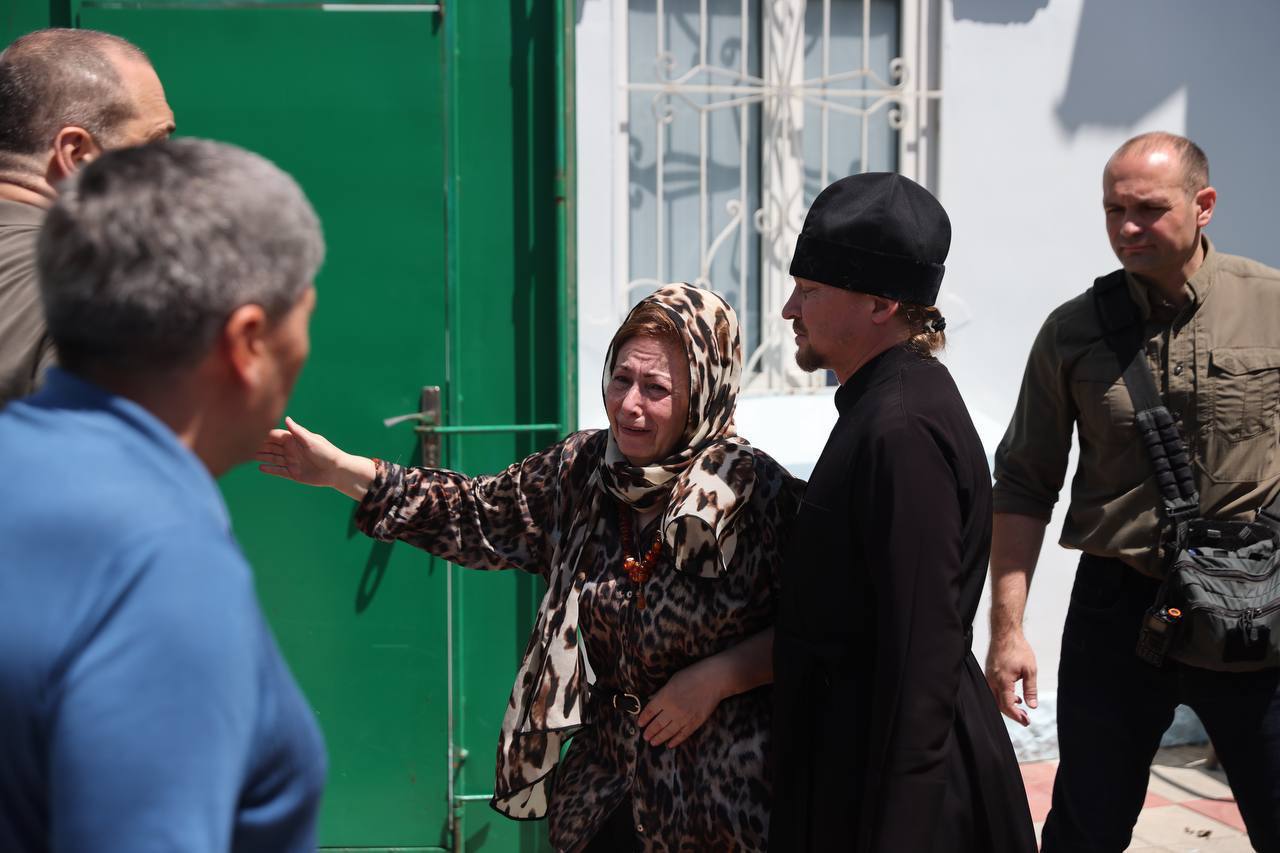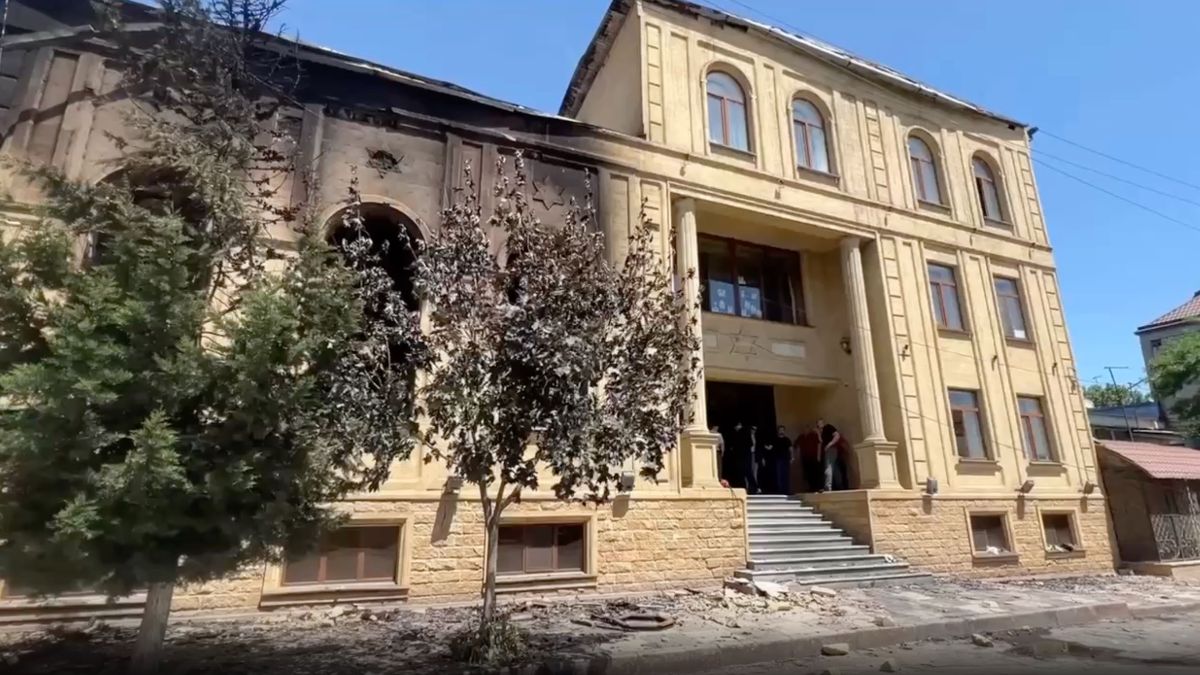Welcome to The Debrief, from the editors at Factal. Each month, we reflect upon an impactful yet underreported story that has significant regional or global implications. We’ll examine how the story has progressed and how Factal’s coverage has shifted to ensure we are always supplying our members with the most up-to-date, accurate, factual reporting.
If you like what you’re reading, sign up to receive The Debrief in your inbox on the first of every month here.
Russia’s neglect breeds unrest in North Caucasus
Attacks on religious sites in southwestern Russia’s Dagestan region in June left more than 20 people dead, underscoring how the North Caucasus region continues to be a thorn in President Putin’s side, two-and-a-half decades after the first major test of his leadership came from the region.
On June 23, gunmen simultaneously attacked two Orthodox churches, a synagogue and a police post in Russia’s predominantly Muslim Dagestan region, situated between the Caspian Sea and Chechnya. More than 20 people – mostly police – were killed and dozens others were injured in the attacks that coincided with Pentecost Sunday.
No group has claimed direct responsibility for the attack and all five gunmen died in protracted shootouts in the cities of Derbent and Makhachkala. A Dagestani official, who was the father of two of the suspects and the uncle of a third, was detained and allegedly admitted during interrogation that he was aware the three had become involved in Wahhabism.
The attack followed March’s Dagestan-linked and Islamic State-claimed assault on a Moscow concert hall that left 145 people dead. It was also preceded by the storming of Makhachkala Airport in October last year, which was fuelled by rumors of a plane arriving from Israel by Muslim-separatist Telegram accounts, following the start of the Hamas-Israel war.
According to Factal editor and Russia expert James Morgan, the violence, attributed to a rise in domestic extremism, has coincided with heightened counter-terrorism activity in Dagestan.
“This might indicate more activity in the region or Russian authorities being more proactive to try and foil these attacks before they happen,” Morgan said.
The Kremlin’s struggle with its Muslim separatist front in the southwest predates President Vladimir Putin’s reign. However, a Chechen separatist incursion into Dagestan and a deadly string of apartment bombings blamed on Chechen separatists set the scene for Putin to launch a full-scale war on the region in 1999.
While Moscow’s brutal war on Chechen separatists ended in mid-2000, the insurgency in the Caucasus has continued to fester. Fighters from the region perpetrated high-profile attacks in Russia throughout the decade, including the Moscow theater siege in 2002 and the Beslan school siege in 2004.
Morgan attributes the protracted conflict in part to Russia’s notoriously brutal methods, where the focus remained on military actions as opposed to efforts to bolster economic opportunities in the Caucasus, which significantly lags behind the rest of Russia.
“The tactics Russia has employed in the area have very much been temporary fixes for the issue — generally counter-terror operations. There’s no real grassroots initiatives to try and improve, fundamentally, people’s quality of life in the area, which I think would go a little way into decreasing resentment and minimizing the probability of people becoming radicalized,” Morgan said.
“The tactics Russia has employed in the area have very much been temporary fixes for the issue — generally counter-terror operations.”
While Dagestan and Chechnya share the same bleak economic outlook, there is one key difference when it comes to Moscow’s governance of the two. Ramzan Kadyrov’s totalitarian rule of Chechnya ensures his paramilitaries do the Kremlin’s counter-terrorism bidding.
“In Dagestan, this is a bit more difficult purely because they don’t have that sort of figure heading the republic,” Morgan said. The onus falls more heavily on Moscow’s security apparatus that has been stretched increasingly thin by Putin’s full-scale invasion of Ukraine.
“I don’t think Moscow has the bandwidth to adequately respond to this threat, especially in the backdrop of the war in Ukraine,” Morgan added, a stark juxtaposition to years past when the Kremlin dedicated considerable manpower and resources to the Caucasus.
Russia’s war in Ukraine has had additional downstream effects in Dagestan, Morgan said. Violent protests erupted in Dagestan in the wake of Moscow’s decision to enlist men for its war effort.
“It was perceived that the Dagestani people were disproportionately affected by mobilization in Russia, and there were some figures that indicated that they were being disproportionately drafted into the war,” he said. “That has really played on anti-Moscow sentiment in the region.”
“These kind of radical attacks do make Russia look incredibly vulnerable, which is an image that Russia really does not want to present to the world.”
The war with Ukraine also provides a scapegoat, Morgan added, noting Moscow’s evidenceless blaming of Kyiv for the recent violence in or linked to Russia’s Caucasus, aimed to distract from a simmering domestic radicalization problem.
“It’s very much the kind of contentious topic that [the Kremlin] doesn’t want people to look at. They very quickly brush this sort of thing under the rug.”
This is a notable shift from earlier in his rule when Putin seized upon attacks attributed to Chechen fighters to bolster his popularity and act as casus belli to invade Chechnya, with former insiders accusing the Kremlin of false flag operations. Morgan, who was in Moscow during the 2010 bombing attacks on the city’s metro system, witnessed this first hand.
“I remember the relative normalcy that ensued the day after the attacks, as if nothing had happened. I think that’s indicative of the Russian government’s strategy with [extremism],” he says. “And I think that these latest attacks in Dagestan really show that as well.”
Though the tactics and messaging deployed by the Kremlin regarding extremism emanating from the Caucasus have fluctuated over two-and-a-half decades of Putin’s rule, the problem itself remains ever-present.
“Their security forces have been a bit more active in trying to proactively curtail attacks, because fundamentally, I think these kind of radical attacks do make Russia look incredibly vulnerable, which is an image that Russia really does not want to present to the world.”
Written by Alex Moore. Edited by Halima Mansoor.

Further reading:
- Review Factal’s coverage of the Dagestan attacks on our topic page (members link)
- Watch this investigative documentary by Proekt about Ramzan Kadyrov and his rule of Chechnya
- This study published by SciencesPo documents and examines the Dec. 1999-Feb. 2000 period in Russian state violence around Chechnya’s Grozny
- Read this New Lines Magazine report on the dynamics of Chechen battalions fighting against Russia in the war with Ukraine
Top photo: The 110-year-old Kele-Numaz synagogue in Derbent, Russia, was destroyed in the attacks on religious centers in Dagestan on June 23. (Image: Republic of Dagestan/Press Service)
Thanks for reading! If you enjoyed this edition, sign up here to receive The Debrief in your inbox on the first of every month.
Factal gives companies the facts they need in real time to protect people, avoid disruptions and drive automation when the unexpected happens.
Try Factal for free or talk with our sales team (sales@factal.com) for a demo.

